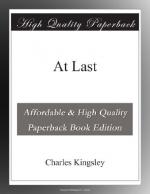“For he is a good—an upright man!” thought the wife. “But he was privy to the fact of her previous marriage! Why have I never heard of it? He has invariably spoken of Clara as having lived single in her mother’s house up to the date of her union with my brother.”
She could not but remember, likewise, that there was a certain tone about the Dorrance connection she had never quite comprehended or liked—a reticence with respect to details of family history, while they were voluble upon generalities, over-fond of lauding one another’s exploits, virtues, and accomplishments; referring in wonderful pride to “our beloved father,” and extolling “our precious mother,” who, by the way, was so little in request among the children, that she had, since Clara’s marriage, occupied apartments in a second-rate boarding-house in Boston. Mabel, when convinced of the futility of her hope of having Aunt Rachel with her, had proposed to offer Mrs. Dorrance a house in the commodious mansion of her youngest son; but Herbert, with no show of gratification at what he must have known was a sacrifice of her inclinations, had coolly reasoned down the suggestion. The whole tribe—if she excepted her husband, and perhaps Clara—had, to her perception, a tinge of Bohemianism, although all were in comfortable circumstances, and lived showily. Mabel had often chided herself for uncharitable judgment and groundless prejudice, in admitting these impressions of her relatives-in-law; but they returned upon her in this twilight reverie with the force of convictions she was, each moment, less able to combat. What darker secret lay back of the concealment her rectitude of principle and sense of justice declared to be unjustifiable? and might not this concerted and persistent reserve imply others yet more culpable?
It showed her correct estimate of her brother’s character, that she never for a second accused him of connivance in the deceit practised upon his relations and neighbors. He would not have scrupled to wed a widow, knowing and acknowledging her to be such. Nothing—not love, tenfold more ardent and irrational than that he felt for his siren wife—could have wrought upon him to introduce to the world, as Mrs. Aylett of Ridgeley, one who had been before married, and was ashamed, for any cause whatever, to avow this. The blemish left by the acrid breath of common scandal upon a woman’s fame was to him ineffaceable by any process yet discovered by pitying man or angels. The maligned one may not have erred from the straitest road of virtue and discretion, but she had been “talked about,” and was no consort for him. In his State and caste, private marriages were things disallowed, and but one shade more respectable than liasons that did not pretend to the sanctity of wedlock. What would he say when the contents of this dingy pocket-book were spread before him? Ought his sister to do this?




